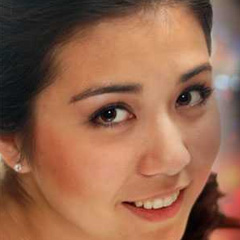Joseph Ratzinger/Benedict XVI sheds light on a matter that English-speaking Catholics will encounter later this year. The new translation of the Roman Missal, which will take effect in Advent 2011, changes the words of institution, the words the priests says to consecrate the bread and wine, transubstantiating them into the Body and Blood of Christ. Holy Week is a good time to examine that.
In the current English translation the priests says over the chalice, “... it will be shed for you and ‘for all’ so that sins may be forgiven...” The new translation will say, “... will be poured out for you and ‘for many’ for the forgiveness of sins....”
The leader of the retreat was Gavin Miller, a biologist, ecologist and Catholic layman. Miller’s theme was humankind’s relationship with the realm of nature, as that ratio has been deformed, especially over the last two or three centuries, by motives of greed and exploitation long endemic in Western culture. This lethal link, however, is neither necessary nor inevitable. We can choose life instead of death, co-existence with nature instead of manipulation — if we are willing to view nature in the holistic perspectives opened in history by the Resurrection of the Lord.
The contemporary environmental crisis, Miller told us, is deeply rooted in an instrumental and utilitarian attitude toward nature that is typical of mainstream Western thought and practice. This impulse has a venerable history. Magic, for example, was the ancient bid to desacralize and conquer nature, to reduce everything to operational quantities.
Every Easter, millions of Christians worldwide celebrate the Resurrection of Jesus. They rejoice at the Scripture passages that recount the Risen Lord appearing first to Mary Magdalene and later to His disciples. The story is so familiar, so central to our faith, that even casual church-goers can almost recount it by rote. But what really happened that day?
In Pope Benedict’s new book, Jesus of Nazareth — Holy Week: From the entrance into Jerusalem to the Resurrection, Christians have been given an Easter present to help them explore that question. The final chapter of Benedict’s book is a profound historical examination of the Resurrection. On the matter of that first Easter, he ponders: What is the Resurrection of Jesus?
Charles Lewis: A religious voice is — frighteningly so — second-class in society
By Charles Lewis, Catholic Register SpecialSuch issues as embryonic stem-cell research, the large number of abortions taking place in Canada or the rampant use of pornography in society is expected to be discussed in non-religious terms — even if religion has something to say of value for the broader good.
This was made clear to me in an unusual way not long ago. I was writing about the debate on euthanasia. I happened to interview a woman, a physician and professor, who gave some very rational and secular reasons for opposing euthanasia.
An anti-euthanasia activist was furious at me for speaking to her. He said I had undermined his cause because the woman also happened to be a nun and her objection to euthanasia would just confirm to the society at large that this was another case of religious people trying to impose their values on secular society.
 MADRID - Playing a character with no apparent redeeming qualities was a blessing that helped Wes Bentley regain sobriety after years of addiction and isolation.
MADRID - Playing a character with no apparent redeeming qualities was a blessing that helped Wes Bentley regain sobriety after years of addiction and isolation.The actor made the comments to journalists in Madrid for the premiere of Academy Award-winning director Roland Joffe’s film There Be Dragons about the early life of St. Josemaria Escriva de Balaguer, founder of Opus Dei.
Bentley, the son of two Methodist ministers from Jonesboro, Ark., said he grew up in a “loving, supportive, spiritually strong family.” Over time he said he “drifted into another world” where “things got very dark and lonely. I had isolated myself from everybody who cared about me.”
The first scenes Bentley was asked to shoot were scenes in which his character, Manolo, was 78 years old, on his deathbed and about to reveal long-held secrets to his son. In the film, Manolo grew up with and attended the seminary with St. Josemaria but left after one year and ended up becoming a spy for fascist forces during the Spanish Civil War. The war, which lasted from 1936 to 1939, tore apart families, as well as the country.
My friends at Salt + Light Television are in the cable television business — or perhaps better to say, in the evangelization business, cable television department. The greatest profit I gain from their work though is not their TV programs but their special documentaries, available on DVD. I have about a half dozen myself, but there are more than 30 to date, ranging from devotional materials for Lent and profiles of religious communities to lives of the saints and current controversies.
On the last point, their documentary on the Venerable Pius XII and the Second World War is a signal service, dealing with the historical slander that the late Holy Father was indifferent to, or even complicit in, the Holocaust. Given that Pope Benedict XVI has entered the war over Pius XII’s reputation in full battle armour — declaring last year that Pius likely did more than any other person to save Jews — the material assembled in the documentary, A Hand of Peace, is essential viewing.
So it is encouraging to see this important issue injected into the election debate through a promise from Stephen Harper’s Conservatives that’s been endorsed by Liberal leader Michael Ignatieff. Pope Benedict XVI calls religious freedom the path to peace and now we find it may even be a source of harmony between Liberals and Conservatives.
As part of their election platform, the Conservatives have pledged to create an Office of Religious Freedoms that would operate within the Department of Foreign Affairs and International Trade. This new office would monitor religious freedom abroad, promote it as a tenet of Canadian foreign policy and support programs and organizations that advance the cause of religious freedom. It would also offer safe haven to persecuted religious minorities through “generous” refugee programs.
 NEW YORK - The true story of a teenage girl who overcame a horrific shark attack to rise to the top of her sport is translated to the big screen in Soul Surfer (Tri-Star), an uplifting film about the power of faith and perseverance.
NEW YORK - The true story of a teenage girl who overcame a horrific shark attack to rise to the top of her sport is translated to the big screen in Soul Surfer (Tri-Star), an uplifting film about the power of faith and perseverance.Bethany Hamilton (AnnaSophia Robb) is a happy, ordinary 13-year-old living in Hawaii with her parents (Helen Hunt and Dennis Quaid) and two brothers. The entire family surfs, but Bethany shows the most promise, winning competitions and gaining a sponsor.
When they’re not at the beach, Bethany’s family is often in church, where sermons are given by youth group leader Sara (country singer Carrie Underwood in her film debut).
The next generation of Catholic artists face some great challenges
By David Wang, The Catholic Register It is with sadness that I am announcing this to be my last column for The Catholic Register. It has been a tremendous 14 years and I am humbled to have had this opportunity. I am also happy to finish with the privilege of introducing a new generation of young Catholic artists. I pray that they can follow in the footsteps of Matt Maher by breaking through into the general Christian market and perhaps even the secular market.
It is with sadness that I am announcing this to be my last column for The Catholic Register. It has been a tremendous 14 years and I am humbled to have had this opportunity. I am also happy to finish with the privilege of introducing a new generation of young Catholic artists. I pray that they can follow in the footsteps of Matt Maher by breaking through into the general Christian market and perhaps even the secular market.First, there is Mags (magsthesinger.com), who is my daughter. After winning the Wellesley Idol competition at the age of 15 as well as being a finalist in the Faith FM shining star singing competition, she recently released a jazz Christmas jazz album,Dreaming of Christmas.
Kathleen Dunn (kathleendunn.ca) has released two albums, the most recent His Saving Love. Among her accomplishments are ministering for 13,000 at the National March for Life on Parliament Hill.
So it's difficult to comprehend last week's unseemly events in Ottawa where Archbishop Terrence Prendergast had to intervene to cancel a D&P initiative because the speaker from Mexico, a priest, runs a human rights organization that is chummy with a pro-abortion group. The archbishop must be wondering how in heaven's name this could have happened. How could D&P, his own staff, fellow bishops and the priest himself, Fr. Luis Arriaga, put the Archbishop in such an awkward position.
Prendergast is one bishop unreservedly on the front line in the anti-abortion crusade, whether it be in his public statements, joining the annual March for Life or, last year as Quebec bishops were noticeably absent, standing with Cardinal Marc Ouellet when Canada's then-primate was under attack for unequivocally defending life. So he would have been rightfully perplexed and perturbed at reports that his archdiocese was welcoming a speaker from a D&P partner agency that is linked to a pro-abortion organization called Right to Decide.
But was Harper’s support for the culture of death really so surprising? He and his governing Conservatives had already tried to reverse an important pro-life orientation of Canadian foreign policy when they decided to end the practice of seeking clemency for Canadians facing capital punishment in other countries. (The decision was eventually rebuffed by the courts.)
The Prime Minister’s personal preference is also unsurprising in view of the fact that most Canadians appear to agree with him. Harper is a crowd-pleaser, and that’s what crowd-pleasers do: go with the polls.

